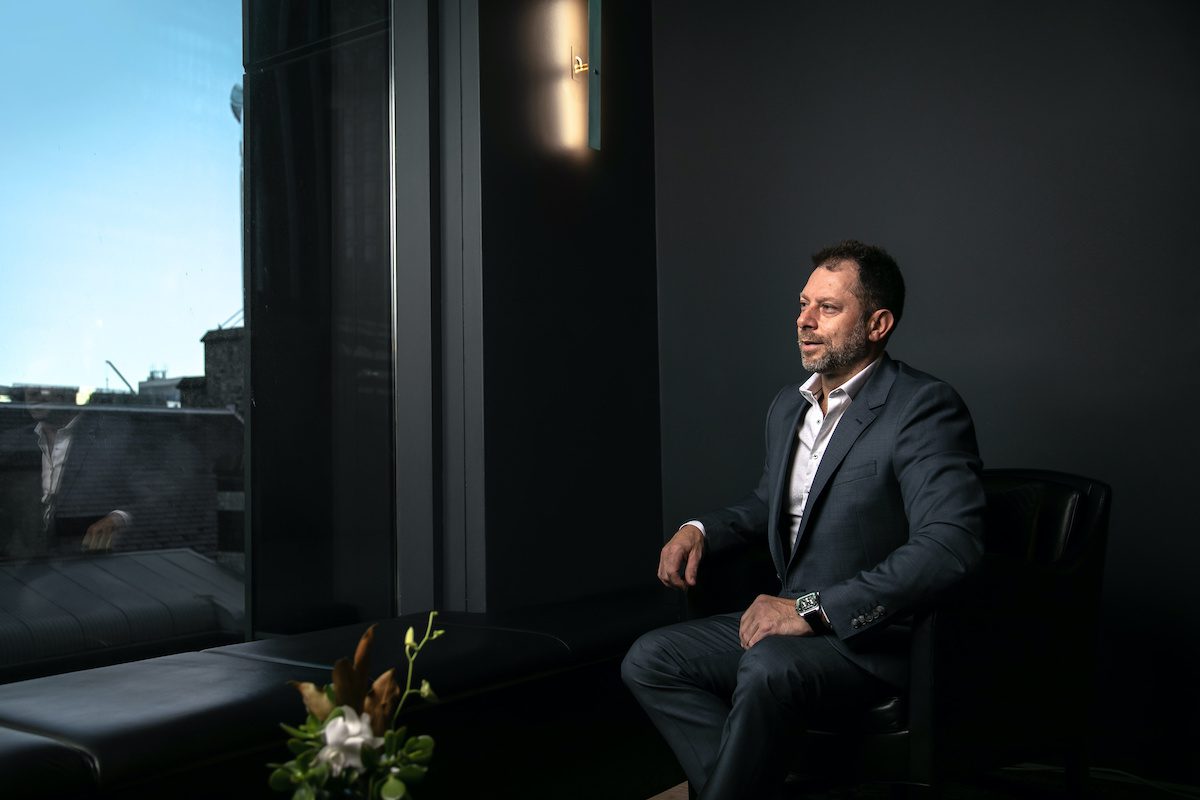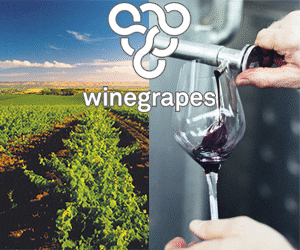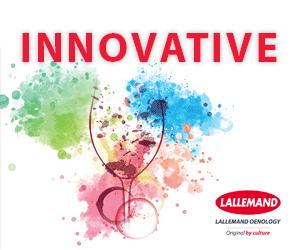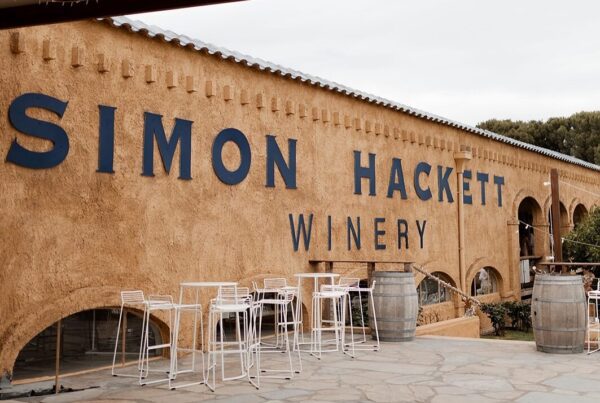
Dean Taylor, founder and CEO of Digital Wine Ventures (DWV) admits there’s a lot to be said for being in the right place at the right time in business.
Covid-19 has been a blessing for the ASX-listed company and its new wine logistics platform, Wine Depot.
“We launched the first stage of Wine Depot in November 2019, providing wineries with an order fulfilment service,” Dean says.
“We got off to a great start signing up a couple of dozen wineries. As Covid-19 hit, like many other businesses we battened down the hatches expecting the worst. Then much to our surprise order volumes jumped 100 percent overnight as every winery in the country pivoted, working their databases and wine clubs harder to keep the cash coming in. Since then we’ve grown more than 20 percent every month and now have more than 350 producers on board. DTC is our sweet spot so we were definitely in the right place at the right time.”
Digital Wine Ventures (ASX:DW8) is one of a handful of wine businesses listed on the ASX. Dean says raising capital exceeded expectations. “It’s just been crazy, all the interest in our story,” he says after recently closing a $6 million capital raise heavily over-subscribed. “There aren’t a lot of ASX companies exposed to the wine market. People get excited about technology and they can relate to wine, they can touch and feel it. It’s not as boring as pulling zinc or copper out of the ground. With Covid, investors have been looking at where the opportunities might be for businesses with tailwinds. Online retail has gone bananas, wine has gone bananas, logistics has gone bananas and investors put the three together.”
Dean has had the vision for Wine Depot for 20 years but it came to a head three years ago at an entrepreneurs’ retreat in South Africa. Participants had to pick an idea they’d been thinking about and then present a business plan to the rest of the group within six hours. “I decided to talk on this little idea in the back of my head called Wine Depot,” Dean says. “When I got back from South Africa I decided to bite the bullet and make it happen.”
Wine Depot is a cloud-based technology platform that connects wine industry stakeholders, reducing time and capital wasted in the existing supply chain. “The solution we have allows wineries to deliver quicker and cheaper,” Dean says. “As our tagline says, we let drinks flow. If you’re going to compete in the digital space you need to be able to match market expectations – consumers expect delivery within two days now so to achieve that from a regional area or from Western Australia or Tassie, is bloody hard if you have to despatch ex-winery. A lot of wineries have realised this and have jumped on board just to be able to make the most of the changing environment and the opportunity to push DTC.”
“Our aim is to digitally connect the industry and leverage our combined market presence to reduce the cost of doing business for everyone, a bit like a co-op or aggregator. For us it’s all about releasing value that is just getting lost to wastage and inefficiency. We’re not trying to cut distributors out of it entirely, there is always going to be a role for managing the relationships and the sales demand, but what we’re doing is allowing people to get rid of their whole back office. They don’t need a warehouse, a warehouse manager or a forklift, they don’t need a couple of vans on the road, they don’t need someone doing the accounts once a week, they can basically get on and do the parts of the business they really enjoy, which is building relationships and selling.
“Two of the most successful online businesses in the world, Amazon and Alibaba, don’t have great sales websites – they are actually really good logistics companies. In many ways they’ve inspired me to do what we’re doing. The entire supply chain hasn’t evolved in the 25 years I’ve been in the industry, but there have been so many advances in the vineyard and in production. Retail has become really clever, too, but the supply chain has been left to rack and ruin. I could see that no one was looking at this part of the industry and that was where I saw the biggest opportunity to use technology, to not just disrupt but digitally transform the entire supply chain.”
Stage two of Wine Depot is to launch a direct-to-trade marketplace that allows wine producers to connect with thousands of trade buyers. “That’s where things get really exciting,” Dean says. “While our logistics solution offers producers benefits and savings, our marketplace will provide wineries access to wholesale distribution a fraction of the 35-50 percent it normally costs. If we can make that channel almost as profitable as DTC, then there isn’t a winery in the country that won’t want to be involved.”

International expansion is also part of the vision. “Wine is a universal commodity,” Dean says. “It’s drunk all over the world and should be able to cross borders fairly easily. I bought a camera recently which was drop-shipped out of Hong Kong and I had it within two days. That’s the future of wine. You will be able to order anything you want and it will get drop-shipped out of a hub in Singapore, Hong Kong or China, you will be able to guarantee the provenance, it will be delivered in an insulated box or package and, except for a bit of bottle shock, it will be ready to go. That is how we’ve started to think about our model.
“Exports are crucial for Australian producers, but it’s not a very profitable route to market with the layers of distribution and all the on-costs, unless you’re moving it by the container. So what we’re trying to do is allow the producers we work with, the ability to sell directly to consumers in other countries, without going through all those layers of distribution and lose all the margin, so that it becomes as profitable a market as the DTC market is in Australia. Our plan is to expand our depot network into key markets and hold a body of inventory ready to be picked, packed and delivered as the orders come through. It’s no different to what we’re doing with our depots in Sydney, Brisbane, Melbourne, Adelaide and Perth. It doesn’t work for everyone, but for those who want an easy ramp into new export markets, that’s the platform you will need.”
Dean says Covid-19 is forcing Australian wine producers to rethink their business models. “I hope what Covid is teaching the wine industry is that old volume-value equation remains as strong as ever,” he says. “Wineries have had to pivot into DTC and I’d like to think they go ‘wow, look at all this extra margin. Why are we dropping our pants every year with the supermarket buyers trying to keep that shelf space, when it doesn’t make all that much margin.’ Tyrrell’s went down that path 15 years ago. They realised they were making wine for the sake of it and not making any extra profit. I’d like to think Covid and other challenges will make people pull back and rationalise a bit. Covid is going to be one of those turning points for the industry. People are realising that, yes, they only sell 20 percent of their wine at cellar door, but it makes 80 percent of their profit, so why go and plant another 20 acres if it isn’t going to improve the bottom line?”
Dean says Australian winemakers must learn to live without China. “A few years ago I spent time in China and was amazed at the number of warehouses in Shanghai alone that were full of Australian wine going nowhere,” he says. “Ten storey buildings full of Australian booze with vintages going back 10 years. I just wonder how much of the $1.2 billion we sent there, was real. There were people with too much money who were clueless, who thought they could buy wine and just get it out through their networks. And this whole wine-dumping thing is hilarious because most of the cheap booze they’re talking about ends up being bottled by Chinese importers who whack a fake Penfolds label on it – they are only hurting themselves by stopping our exports.
“We’ve got to go back to basics. We were doing $1 billion of trade with the UK 15 years ago. There’s a lot of brand equity still in that market and if we can take a direct-to-trade platform like ours into the UK we can reduce their distribution costs and make that market profitable again for Australian producers. They can take their full range of products there and leverage their brand equity – not just having one or two products on the shelves in Sainsbury’s. We can reignite that market without having to deal with all the bullshit and sovereign risk. We’ve got to stop chasing the fool’s gold that China really is.”
Asked about the future of consumer purchasing, Dean says, “Digital.” Then he adds, “The tipping point in any market typically occurs at 12.5 to 15 percent penetration. Online wine has been about eight percent for a while, but with Covid it’s more than doubled to 16 to 18 percent now. People are realising how convenient it is. Uber Eats and other food delivery brands have driven a lot of that behaviour change. Why bother going out even though it’s five minutes’ drive? People have gotten lazier and lazier, and wine is heavy. Some of us still like to trawl the shelves of the local bottlo hoping to find that mispriced gem, but people have woken up to the convenience of online. People are also moving towards authentic brands, they want things that express their own personalities. People want something different and interesting and online opens that world up.”
Dean says that Covid has already shown the role that venues such as restaurants can play selling wine to consumers. “I think that in the future if you like a wine at a restaurant, you will be able to order a case on the spot and have it added to your restaurant bill,” he says. “You wouldn’t want to be paying a 200 percent mark-up on every bottle, but there’s no reason why we can’t provide venues with the ability to do this so they become retailers and start drop-shipping off our logistics solution. The infrastructure is already there, it’s just a matter of building some sort of ordering tool for the punters at the venues.”
He is cautious about the economy. “Many businesses are hurting,” Dean says. “I think 2021 will be tougher. I’ve been amazed at the flow-on effect on various industries including hospitality – you forget that all these people are dependent on other people spending money. Like a mate of mine said, the Australian economy is like this – half of us are digging dirt out of the ground and selling it, and the other half are making each other coffee.”
• Article first published in the November/December 2020 edition of WBM – Australia’s Wine Business Magazine. Subscribe here.
Related content













Recent Comments